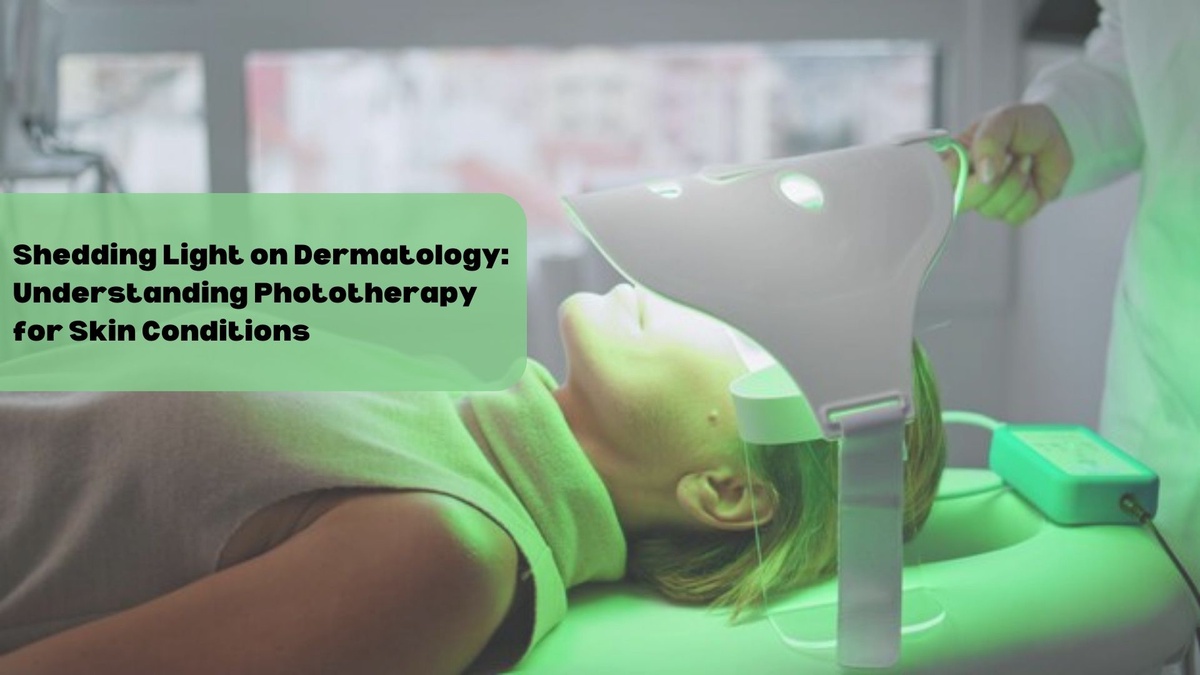Introduction:
Dermatology, the branch of medicine that deals with skin health, encompasses a myriad of conditions ranging from acne to chronic skin disorders. One innovative and effective treatment gaining prominence in dermatology is phototherapy.
What is Phototherapy?
Phototherapy, also known as light therapy, involves the use of specific wavelengths of light to treat various skin conditions. The light can be delivered in different forms, such as ultraviolet (UV) light, visible light, or a combination of both.
Conditions Treated with Phototherapy:
- Psoriasis: Phototherapy has proven to be a valuable treatment for psoriasis, a chronic skin condition characterized by red, itchy, and scaly patches.
- Vitiligo: For individuals with vitiligo, a disorder causing loss of skin color in patches, targeted light exposure can help stimulate repigmentation.
- Atopic Dermatitis (Eczema): Phototherapy is often recommended for managing severe cases of eczema, providing relief from itching and inflammation.
- Acne: Certain types of light therapy, particularly blue light, are being explored as an adjunctive treatment for acne by targeting acne-causing bacteria.
How Does Phototherapy Work?
The mechanism of action varies based on the type of light used. UVB light is thought to slow down the rapid growth of skin cells seen in conditions like psoriasis, while UVA light, often combined with psoralen (PUVA), modulates immune responses, and get best treatment with Skin Care Hospital In Coimbatore.
Types of Phototherapy:
- UVB Phototherapy: UVB light is effective for treating conditions like psoriasis and eczema, administered in controlled doses during sessions.
- PUVA Therapy: This involves a combination of UVA light exposure and the use of psoralen, a medication that sensitizes the skin to light.
- Excimer Laser: This targeted laser therapy is beneficial for localized areas affected by conditions like psoriasis.
Benefits and Considerations:
- Non-Invasive: Phototherapy is generally non-invasive, making it an attractive option for individuals seeking alternatives to systemic medications.
- Side Effects: While generally safe, phototherapy may have side effects such as redness, dryness, or pigmentation changes. Long-term exposure to UV light should be carefully monitored.
Conclusion:
Phototherapy stands as a beacon of hope for individuals dealing with various dermatological conditions. As advancements continue, Best Dermatologist In Coimbatore are harnessing the power of light to provide effective and tailored treatments, bringing relief and improved skin health to countless patients.
In conclusion, the integration of phototherapy into dermatological practices underscores the dynamic nature of medical science in addressing skin concerns. With ongoing research and technological advancements, the future of phototherapy holds promising prospects for enhancing the quality of life for individuals navigating dermatological challenges.


No comments yet